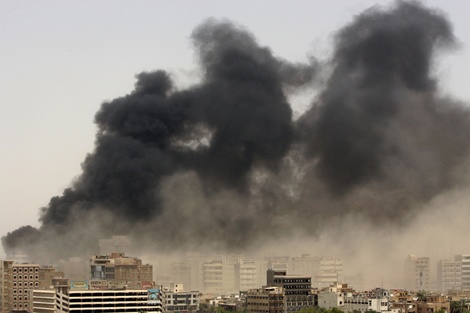The encouraging developments in those parts of Iraq not on the sectarian faultline - Kurdistan, some Sunni areas, like Anbar, a handful of Shiite population centers - are important to absorb. Even the Observer in London (the Guardian's sister-paper) has taken note. But it's equally important to realize what they tangibly mean. They mean that in mainly homogeneous regions, serious counter-insurgency tactics can work in creating more peaceful expectations and thereby peaceful communities. (Think what might have been done if we'd had this in place in 2003.) Along the sectarian faultlines, however, where ethnic cleansing is taking place at a quiet but brisk rate, the chances for more peace are far more limited. The chance of leveraging oases of stability into a national settlement is an even remoter likelihood. With no real central government, and force levels nowhere near enough to saturate the country as a whole, even a plan of hanging in there till 2009 as we currently are is really a hope rather than a plan. Fred Kaplan has a useful analysis of the new Pentagon strategy in Slate. Again, our limited man-power and the lack of a central government are the key problems:
Ever since late last year, when President Bush ordered the "surge" and hired Gen. Petraeus to create a counterinsurgency strategy, the plan has involved securing the capital and the provinces simultaneously.
The problema familiar oneis that we don't have enough troops to do this all at once. No one who has seriously analyzed the problem ever believed that a "surge" of 20,000 to 30,000 U.S. combat troops would be sufficient. It was assumed from the outset that at least two or three times that many would have to come from the Iraqi army (whose soldiers, furthermore, would have to take the lead in many operations) and the Iraqi police (who would need to maintain order once the troops seized new territory).
Yet Iraqi forces have not materialized in anything like the necessary numbers. Many army units are infiltrated with sectarian militiamen. Many, if not most, police units are thoroughly corrupted.
This leaves us with the following options:
If the United States pulls out, Iraq's sectarian warfare would probably intensify. If the United States stays in and the surge continues, Iraqi violence might be contained, but 700 to 1,000 more American soldiers will probably die each yearand there will be only a one in 10 chance that the strategy will succeed (by rather minimal standards of success)...
The president is prepared to gamble with these odds. What does he have to lose? But how about the rest of us? The question in front of us is whether the United States is prepared to bear the brunt of indefinitely occupying a failed Middle Eastern state, and sacrifice thousands more of its young, in order to salvage the face of a second-term incompetent and his corrupt machine.
(Photo: Sabah Arar/AFP/Getty.)
